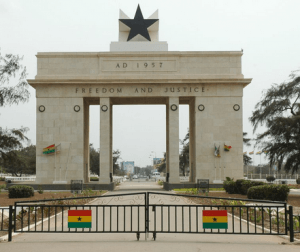Ghana is first to attain MDG One, but about six million citizens still in poverty
 In the year 2006, Ghana became the first country in sub-Saharan Africa to achieve the Millennium Development Goal (MDG) One of reducing poverty and hunger well ahead of the deadline of 2015, but nine years on about six million Ghanaians still live in poverty and 2.2 million others are living in extreme poverty.
In the year 2006, Ghana became the first country in sub-Saharan Africa to achieve the Millennium Development Goal (MDG) One of reducing poverty and hunger well ahead of the deadline of 2015, but nine years on about six million Ghanaians still live in poverty and 2.2 million others are living in extreme poverty.
Poverty among the population fell from 1990 levels. Since 2006, poverty declined by another eight percent.
Available information says Ghanaians have also experienced improvements in other non-monetary dimensions of well-being, like access to improved potable water, electricity, and sanitation facilities. However, 2.2 million people in Ghana (8.4% of the population) still live in extreme poverty according to the 2012/2013 Ghana Living Standards Survey 6 (GLSS 6). In addition, across the regions of Ghana, there is signification variation in poverty, with a high absolute poverty rate of 70.7% in the Upper West in the north and 5.6% in Greater Accra region in the south.
This situation necessitated the government’s Social Protection programme, which is a multi-pronged approach to poverty reduction. The government is reaching out to the poor through a mix of programmes.
The World Bank is supporting Social Protection in Ghana through an $88.6 million Ghana Social Opportunities Project (GSOP). Additional Financing of $50 Million for ongoing project activities has been approved by the World Bank Board, bringing the total contribution to $138.6 million, the Bank says.
Speaking during a Ghana Social Protection Reverse Mission in Washington DC Monday June 15, 2015, Sergiy Kulyk, the Programme Coordinator, AFCGH of the World Bank said while Ghana has attained middle-income status which is in statics, there is the challenge of transferring the status to the people.
In his remarks, Stefano Paternostro, Practice Manager, GSPDR, also of the World Bank said Ghana should improve its national registry, introduce the e-payment system and have evidence based implementation of the social protection programme, adding that even though, social protection is new in Africa.
According to the Minister of Local Government Rural Development, Alhaji Collins Dauda, since the inception of the Social Protection Programme in 2007, the Ministry has been working with the Assemblies to deepen it.
He said, the government was working on improving the living conditions of the poor through the expansion of labour intensive civil works.
He also said the Ministry will guide against duplicators and the setting up of parallel structures, and announced that Ghana is in the process of developing a social protection policy.
The Reverse Mission is the first in the history of the World Bank Group’s relations with Ghana.
By Emmanuel K. Dogbevi
